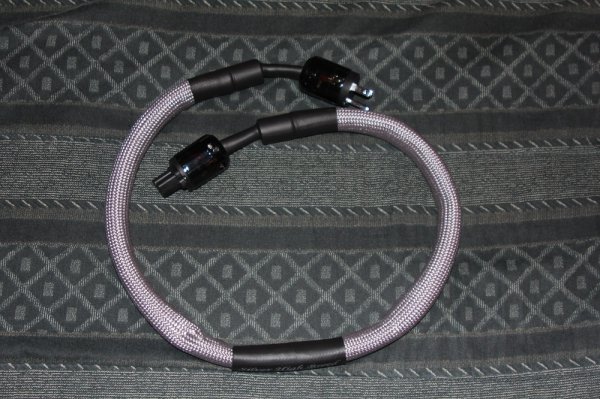While there is noise and spikes and other disturbances coming in, and the power cord "will", via its own capacitance and inductance and shielding (if it has some) affect these disturbances, there is also, as an easy example, where a high power power amp, like Gary said, can draw pulses of high peak currents from the power line, and since these must also flow through the power cord (forget the mains wiring for now) the relatively huge electromagnetic pulses, can be transferred from that power cord to any nearby victim wires, and thus be reintroduced via another power cord, or interconnect, or simply through the chassis into the victim component and result in that spike being amplified along with the audio programe.
Thats just to show how your own gear can generate its own "pollution" an foul your other own gear.
A properly shielded and terminated power cord can decrease these destructive pulses, and even if not shielded, just the way the wires inside are wrapped as opposed to one another will affect the magnitude of this disturbance.
This is plain old electronics and not magic. The effects though, like when audiophiles learn about possible distorting mechanisims and apply them to what they hear are in the other realm, and the audibility would vary with circumstances but certainly happens none the less, in the right circumstances.













